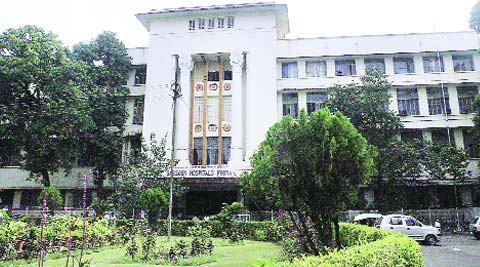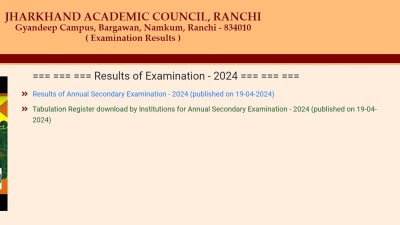- India
- International
Free treatment for haemophiliacs at Sassoon
An estimated 1 in 1,000 people have bleeding disorders but 75 per cent of them do not know about it and receive little or no treatment.
 An estimated 1 in 1,000 people have bleeding disorders but 75 per cent of them do not know about it.
An estimated 1 in 1,000 people have bleeding disorders but 75 per cent of them do not know about it.
Sassoon Hospital has brought a fresh hope for several haemophilia patients as the hospital has started providing free treatment to them. Every year on April 17, World Haemophilia Day is marked around the world to spread awareness about haemophilia and other inherited bleeding disorders.
The main treatment for haemophilia involves replacement therapy where concentrates of clotting factor VIII and IX are slowly dripped or injected into a vein. These infusions help replace the clotting factor which is missing or low in patients.
Dr D B Kadam, Spokesperson, Sassoon Hospital, and Head, Department of Medicine at B J Medical College, said they have received the supply from the state health directorate and have started treating patients.
Anil Lalwani, Secretary, Haemophilia Society of Pune, which has over 700 patients registered, said the unavailability of injections was a major problem as sometimes patients required them twice or thrice a week. Since the cost of treatment at private hospitals is high, patients had to be sent to Satara for treatment, he added.
An estimated 1 in 1,000 people have bleeding disorders but 75 per cent of them do not know about it and receive little or no treatment.

This year, the day will focus on encouraging global bleeding disorders’ community to speak out to bring about changes. “We have organised a meeting at B J Medical College on Sunday for the purpose,” said Lalwani.
A person born with haemophilia will usually have it for life and its severity depends on the amount of factor VIII or factor IX in the blood.
Without treatment someone with severe haemophilia is not expected to survive up to adulthood, which is why there are ongoing global efforts to find a new treatment and cure for haemophilia.
A recent first study by University of Pune’s (UoP) School of Health Sciences had found that treating haemophilia results in significant out of pocket expenditure for Indian households. The study measured the out of pocket expenditure and found it to be ‘catastrophic’ in nearly 68 per cent of households. Catastrophic expenditure would mean spending on haemophilia treatment in excess of 40 per cent of the household’s capacity to pay , said Dr Anita Kar, Head, School of Health Sciences, UoP.
“While the number of patients suffering from haemophilia in India may be less in comparison to other life threatening diseases, the continued determination by the medical research community to search for treatments and cures must be recognised,” said Suneela Thatte, President, Indian Society for Clinical Research.
Click here to join Express Pune WhatsApp channel and get a curated list of our stories
Apr 19: Latest News
- 01
- 02
- 03
- 04
- 05






































